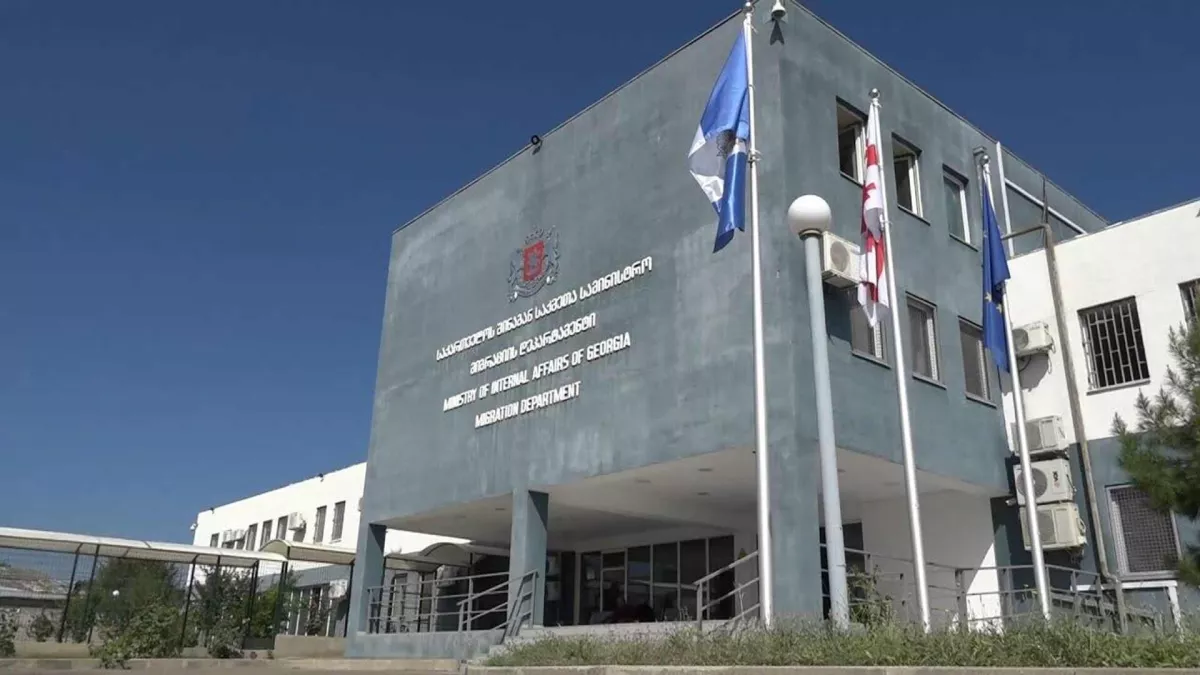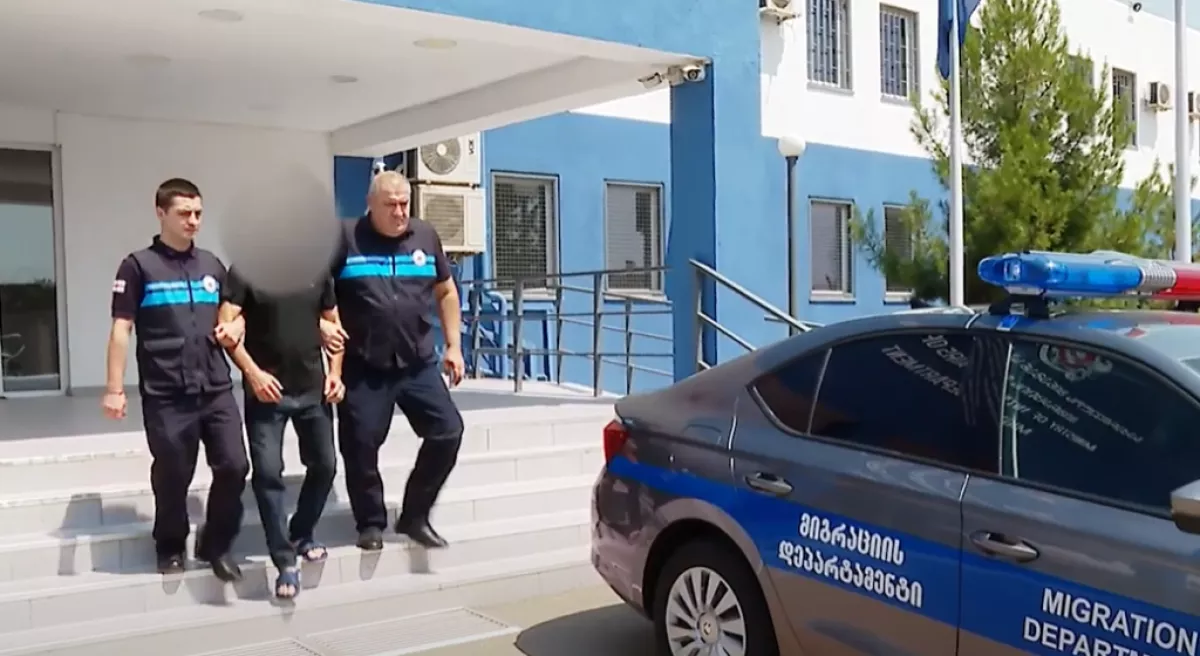Georgia draws the boundaries of hospitality New rules redefine migration and employment
Until recently, Georgia was known for having some of the most liberal policies toward migrants, especially those from countries whose citizens enjoyed visa-free travel. Foreign nationals arriving in Georgia under the visa-free regime could live in the country for an entire year, open businesses, and work almost on the same terms as Georgian citizens. To extend their legal stay in Georgia without obtaining a residence permit, these foreigners only needed to make an annual “visa run” — cross the Georgian border and then re-enter — after which they could once again live in the country for another year, taking advantage of Georgia’s hospitality, running a business, or working as employees. This stood in sharp contrast to the rules in EU countries, where most non-EU citizens require special permits to work or conduct business.
Moreover, the ease of employment for foreigners began to create problems in the Georgian labour market. Businesses increasingly started hiring foreign nationals, especially companies owned by foreigners. Migrants from India, Pakistan, and other Asian countries have been gradually displacing Georgians in sectors such as food and grocery delivery. The number of foreigners working as waiters, cooks, and general labourers has also grown. As a result, Georgian citizens, particularly young people, are finding it increasingly difficult to secure employment in their own country, which in turn is driving emigration. According to the Georgian Ministry of Internal Affairs, recent years have also seen a rise in illegal migration and related criminal activity.
Regulating migration has therefore become a pressing demand within Georgian society. In response, the ruling party, Georgian Dream, decided to tighten migration rules at the legislative level to protect the domestic labour market and curb illegal migration. Recently, following the government’s initiative, the Georgian Parliament adopted a package of legislative changes aimed at strengthening immigration control.

Since the beginning of October, new rules have come into effect in Georgia, introducing higher fines and a simplified deportation procedure for foreigners who overstay their permitted time in the country. Under the new regulations:
-
Overstaying up to three months results in a fine of 1,000 GEL (approximately $370) and a ban on entry for up to six months (previously, the fine was 180 GEL ($66) with no entry ban).
-
Overstaying between three months and one year carries a fine of 2,000 GEL ($740) and a two-year entry ban (previously 360 GEL ($133)).
-
Overstaying more than one year results in a fine of 3,000 GEL ($1,111) and a three-year entry ban.
Foreigners violating transit rules can be fined 500 GEL. In addition, individuals or companies in Georgia that invite foreigners to provide services while bypassing established procedures may face fines of 2,000 GEL.
Among other significant changes is the introduction of deportation and entry bans as forms of punishment for administrative and criminal offences, including minor hooliganism, disobedience to police, and violations related to participation in public gatherings. A new procedure has been established for the expulsion of foreigners convicted under the Criminal Code: the punishment may include deportation and a ban on re-entry to Georgia for 2 to 10 years for “less serious” crimes, and 5 to 20 years for serious and especially serious crimes. Criminal liability is also introduced for obstructing deportation, including the destruction of documents, punishable by up to six years in prison.
The new legislation also tightens conditions for employment and entrepreneurship for foreigners in Georgia. Starting March 1, 2026, under the updated migration laws, foreign nationals working in the country—including self-employed individuals and sole proprietors—will be required to obtain a work permit. Employers must process all necessary documentation for foreign employees before they officially begin work. These measures aim to legalise the labour market, protect the rights of Georgian citizens, and close the loophole that previously allowed foreigners to work in Georgia solely on the basis of legal border crossings (including visa-free entry) and temporary legal presence in the country.
As a result, many foreigners in Georgia will soon face the need to “legalise” the work or business activities they are currently carrying out. This also applies to the hundreds of thousands of Russian citizens who have moved to the country since 2022, partly drawn by Georgia’s liberal migration laws and the absence of requirements for work or business permits.
At the same time, reports indicate that law enforcement authorities have begun taking a more active role in addressing illegal activities by foreigners. Recently, five Russian citizens were detained in Georgia for illegal financial operations and money laundering. These individuals had established an unregistered crypto exchange and currency exchange office, not licensed by the National Bank or Ministry of Justice. Despite conducting large-scale transactions, no payments to the state budget from the companies or individuals involved were recorded.
Investigations also revealed that one company, without the required registration or a license from the National Bank of Georgia, offered services related to virtual assets, including an illegal office and “courier” services. Over the past few months, it processed virtual asset transactions equivalent to hundreds of millions of lari, effectively participating in uncontrolled international transactions within the country. All of this indicates that Georgian law enforcement has begun taking serious action against illegal operations in the crypto business.

More “mundane,” yet socially dangerous crimes among foreigners are also widespread—particularly drug trafficking. Recent events show that some Russian relocants are involved in such activities. When law enforcement authorities take action against them, these individuals often quickly present themselves as “supporters of the Georgian pro-European opposition” and participants in protests. The opposition actively backs these “supporters,” calling for their release and accusing the authorities of “repression.” For example, the opposition has demanded the release not only of its own leaders and activists detained for illegal activities, but also of Russian citizens Anastasia Zinovkina and Artem Gribul, who were sentenced on September 12, 2025 to eight and a half years in prison for drug possession.
Overall, Georgia’s “pro-European” opposition has reacted extremely negatively to the tightening of migration laws, claiming that the reforms are allegedly aimed at “political pressure on inconvenient foreigners.” Yet even with the new laws, Georgia’s approach to migrants remains far more lenient than in most EU countries. This is further evidence that the opposition is increasingly losing support within Georgia and is looking abroad for “personnel” to fuel its revolutions and illegal actions.
Under the new laws, it has become more difficult for migrants to enter Georgia as “refugees.” The Georgian Migration Department now has the authority to review asylum applications from foreign nationals and stateless persons without allowing them entry into the country. According to an order from the Minister of Internal Affairs, this procedure applies to individuals who, in the assessment of security services, pose a threat to state or public safety, or who have previously been expelled from the country for such reasons.
In such cases, the asylum request will be considered directly at the border. The Migration Department is required to make a decision within seven days—either approving the application, denying it, or accepting it for further review. If approved, the foreign national will receive a short-term visa valid for 30 days. While awaiting the decision, applicants will be provided with temporary accommodation, but will not be allowed to move freely within the country until the asylum is either granted or denied.
By Vladimir Tskhvediani, Georgia, exclusively for Caliber.Az








